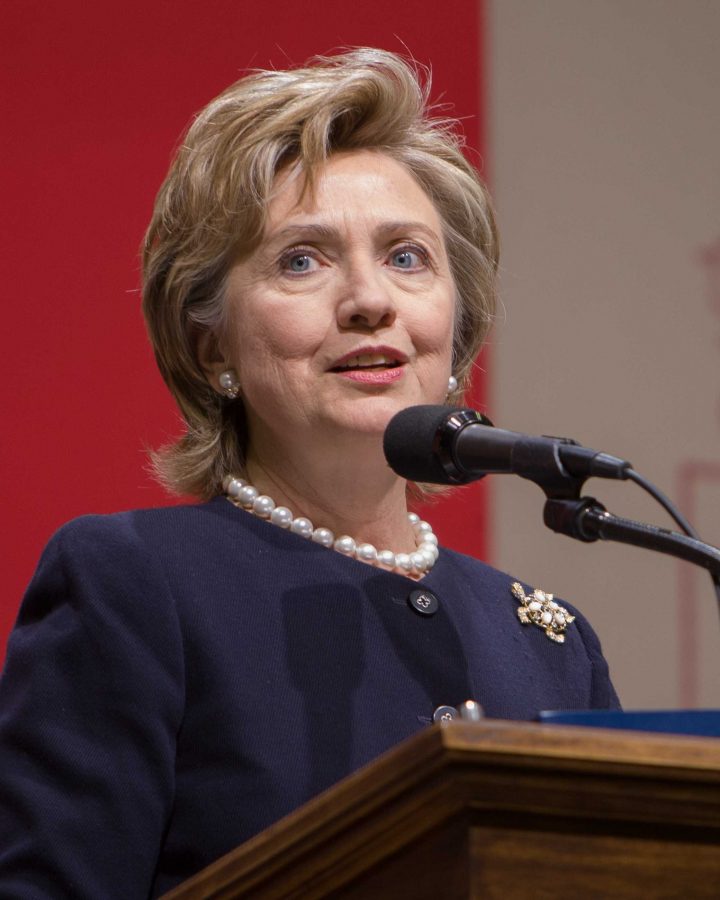With men still dominating the American political system, the possibility of electing a female president becomes increasingly enticing as the search for the right woman continues: she who is strong but not bossy, who has experience but not too much experience, and who advocates for equal rights but does not exploit them.
But who is the right candidate?
As the leading Democrat in the 2016 presidential election, Hillary Clinton will likely represent the Democratic Party in the general election and if elected, be the first woman ever elected President of the United States. Although Clinton is a competent politician and leader, her presidency may be a step in the wrong direction for the feminist movement and may hinder future female presidential hopefuls.
Because there is no precedent for a woman’s presidency, the first female Commander-in-Chief will face intense scrutiny from the media; therefore, as Clinton’s recent email investigation indicates, Republicans and the media will search for potential scandals, and any of Clinton’s actions could reflect poorly on all potential future female presidents as she serves as a representative of the whole.
A Hillary Clinton presidency lends itself to another potential problem: What about Bill? The former president could serve as a distraction to Hillary’s policies and her legacy. If Hillary Clinton has a successful presidency, people may attribute this success to Bill Clinton and her failures to her inadequacy as a woman. Thus, the first female president would preferably be a self-made woman without the shadow of an influential husband.
Although Hillary Clinton has openly identified herself as a feminist, she should not rely solely on her femininity to appeal to the American people. With feminism on the rise, Clinton has shifted to a more women-centric campaign compared to her 2008 campaign against Barack Obama, with her Youtube channel highlighting the struggles of various women. Despite Clinton’s emphasis on gender equality, electing a woman because she is a woman does not accurately reflect true feminist ideals, but rather undercuts the core values of this social movement: social, economic, and political equality regardless of gender. She uses her femininity to market her candidacy and the possibility of ushering in a new political era to the American people, especially women.
On the other hand, Clinton exudes an aura of confidence and has handled difficult personal attacks such as her husband’s affair and the Benghazi trial while maintaining her composure. The first female president will endure sexist jokes and attacks on her womanly sensitivity or bossy attitude, but fortunately for Clinton, her experience as First Lady and Secretary of State has prepared her for both warranted and unwarranted criticism.
On the Republican side, Carly Fiorina, Washington outsider, polling at 3%, vies for the opportunity to represent the GOP in the general election. During the third Republican debate, Fiorina assured the American people that she was “Hillary Clinton’s worst nightmare” and if given the chance, would defeat her in the first bipartisan debate, for Clinton’s policies are “demonstrably bad for women.” Despite Fiorina’s apparent enthusiasm, she like Clinton, would create challenges for future generations of women. Although she lacks the long—or any—political career that could leave her mired in controversy and scandal, her beliefs towards Planned Parenthood and women’s reproductive rights contradict popular beliefs about gender equality.
Because Fiorina is the only other woman in the race, the Republicans could potentially use her to appeal to Republican women. With women identifying more with the Democratic Party, the GOP may attach Fiorina onto the Republican ticket as Vice President to secure more votes from the female population. Fiorina’s intentions are unknown; however, the chance of becoming Vice President could influence her policy decisions creating a dangerous precedent of women succumbing to the influence of the leading men of their political party.
The first female president has to be an exemplary leader without any circumstances that could challenge the ideals of the feminist movement and the quest for gender equality. While a candidate cannot be perfect, Hillary Clinton’s political dynasty and Carly Fiorina’s lack of experience highlight their inability to portray this complex persona. Ultimately, the American people must decide if they are ready for a female president and who should set this precedent.








